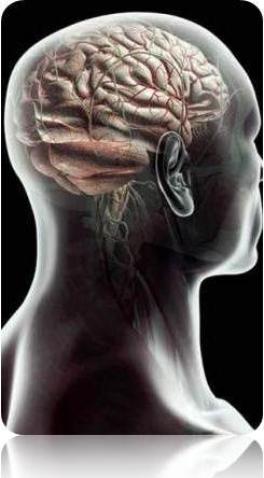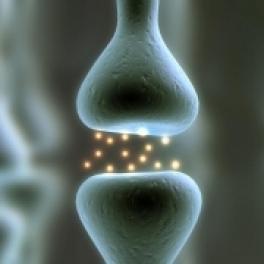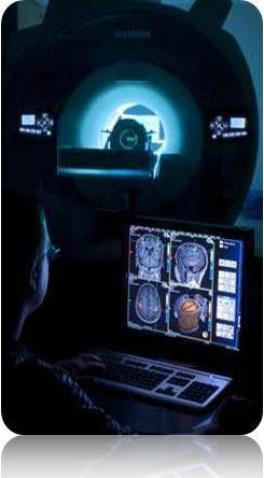Neuroscience Major
Neuroscience is the scientific study of the nervous system and its functions. At Ohio State, neuroscientists explore the nervous system at every level—from the fundamental biology of neurons and supporting cells, to the ways neurons interact within systems to produce specific functions, to the mechanisms underlying mental processes. Our program even extends into cutting-edge areas such as computational modeling and artificial intelligence approaches to understanding the brain and the rest of the nervous system. Whatever your interest, our curriculum offers a pathway for you.
Our coursework is designed to reflect the breadth of the field and to prepare students to become knowledgeable, innovative thinkers. With more than 100 neuroscience faculty members engaged in research across diverse sub-disciplines—including molecular, cellular, systems, behavioral, cognitive, and computational neuroscience—Ohio State provides unparalleled opportunities for scholarly growth.
Students in our program can choose from three areas of specialization:
- Molecular/Cellular Neuroscience
- Systems/Behavioral Neuroscience
- Cognitive/Computational Neuroscience
To find out more about the curriculum related to neuroscience, please follow the links below.
Section 1: Major Requirements Only
Started OSU AU22 Semester to Present
If you started OSU AU22 to Present you will be following the 33-Credit Hours Major Requirements that are listed below:
Started OSU SU22 Semester and Before
If you started OSU from SU15 to SU22 you will follow the 36-Credit Hour Legacy Major Requirements that are listed below:
Section 2: General Education Requirements (New GE and Legacy GE)
The university has implemented a new General Education program that will be followed by students whose first enrollment term is Autumn 2022 or later. GE requirements for current students (that is, students who first enrolled prior to Autumn 2022) will not change, and they will continue to complete the GE program that was in effect when they first enrolled — now called the Legacy GE. Please see your advisor regarding the curriculum that applies to your degree program.
Legacy GE Requirements (GEL): The following degree requirements apply if you began your career as a regularly enrolled college student at Ohio State summer term 2012 through summer term 2022.
ASC BACHELOR OF SCIENCE GEL REQUIREMENTS
New GE Requirements (GEN): The following degree requirements apply to you if you began your career as a regularly enrolled college student at Ohio State autumn semester 2022 or later.
ASC BACHELOR OF SCIENCE GEN REQUIREMENTS
Pre-Major Requirements for All Students

- See a neuroscience advisor to officially declare Pre-Neuroscience* (incoming students will meet with a neuroscience advisor during orientation)
- Complete 24 semester credit hours, 12 of which must be OSU graded semester credits
- Achieve an overall GPA greater than or equal to 3.0
- Earn a "B" or better in Psych 3313 (Introduction to Behavioral Neuroscience) and Neuro 3000 (Introduction to Neuroscience)
- Take Neurosc 1100 (H) and Earn a "B" or better
- Complete the pre-major within 3 semesters or by a timeline set by your advisor
*Note that students who are declared as Pre-Neuroscience are still eligible to use all neuroscience advising services and attend all neuroscience events.
In order to declare the Major or Pre-Major complete the Appointment Request Form.
Specializations
Molecular/Cellular Specialization

Molecular/Cellular Neuroscience is a subfield of neuroscience that examines the mechanisms related to the basic biological processes of neurons and support cells of the nervous system. Cellular & molecular neuroscientists tend to study how neurons communicate, how parts of neurons like axons and dendrites function, and explore the anatomy/physiology of neurons.
For a web-based version of the degree requirements, please go to our courses page.
Systems/Behavioral Specialization

Systems/Behavioral Neuroscience is a subfield of neuroscience that studies how neurons work together in networks to understand the mechanisms that underlie behavior. Behavioral & Systems neuroscientists tend to study how the nervous system is related to psychological and psychiatric disorders, how groups of neurons form distributed neural systems that are related to specified functions (e.g., learning, attention, and sleep cycles), as well as examines what happens when these systems become dysregulated.
For a web-based version of the degree requirements, please go to our courses page.
Cognitive/Computational Specialization

Cognitive/Computational neuroscience is a subfield of neuroscience that studies the neural mechanisms that underlie mental processes. Cognitive & Computational neuroscientists tend to study how specific areas of the brain are related to thoughts and language, create mathematical models to understand cognitive processes, and may conduct research in areas of artificial intelligence.
For a web-based version of the degree requirements, please go to our courses page.
